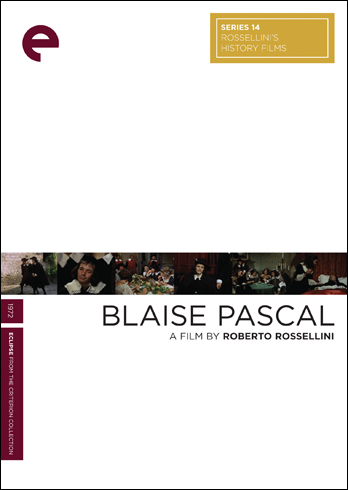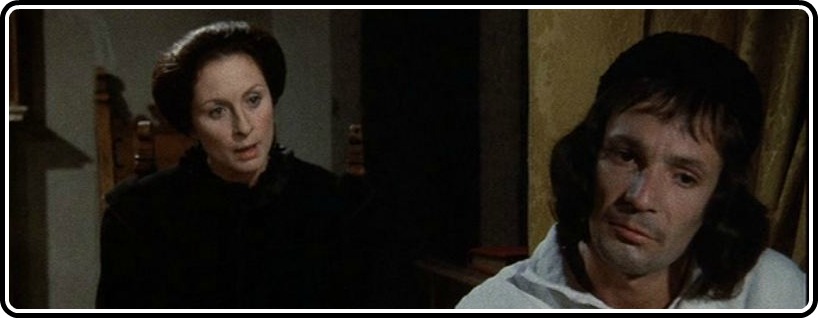
Spring has returned to my part of the world, with longer, warmer days and plenty of other reasons to enjoy one of the most pleasant times of the year. I’ll be sure to get my share of all that, but on the movie watching front, I’m in a season of stark somberness these days. Last week, I contemplated the suppressed yearnings of a priest and a parishioner who each thwarted their desires for each other through the discipline of religious observance in Leon Morin, Priest. Looking ahead, I have an appointment on FÃ¥rö Island with Ingmar Bergman and company as together we will be looking Through a Glass Darkly at a young woman’s descent into schizophrenic madness in which she experiences God speaking to her though the intermediary of a loathsome spider. Cheerful stuff, hey? Since I knew I was in for a stretch of deeper cinematic ruminations with heavy theological overtones, I figured it’s a suitable occasion for me to revisit Eclipse Series 14: Rossellini’s History Films – Renaissance and Enlightenment and grapple with Blaise Pascal, the last of the three titles included in that box that I’ll review for this column. (Here are links to my previous reviews of Cartesius and The Age of the Medici.)
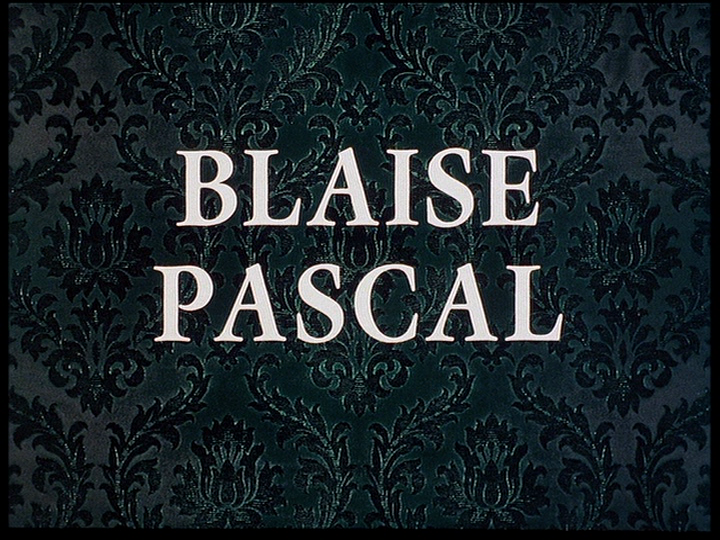
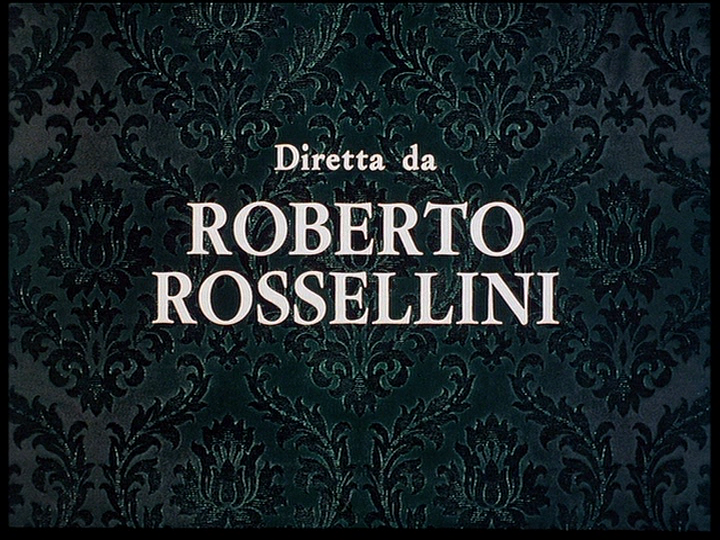
If my words imply that watching these films is something more akin to labor than leisure, that’s not by accident. These are not the kind of movies for which one pops open a beer, pours a full glass of wine or otherwise ingests anything that might induce relaxation or a blurring of one’s rational faculties. On the contrary, a strong cup of coffee or an energy drink may be necessary before sitting down to take them in. Begin the program at a reasonable hour, feeling well rested. If necessary, sit close to the screen in order to maintain concentration. Roberto Rossellini approached his subjects with a rigorously imposed self-discipline that is as admirable and impressive as any director I can think of. His indifferent, even dismissive, attitude when it came to propping up his films with concessions to popular tastes will definitely come across as snobbish or alienating to some, but anyone who respects artistic ideals that are thoroughly considered and effectively realized can find a lot to appreciate about Rossellini’s work, even if it fails to press our excitement buttons all that hard. His films in general, and these late-period histories in particular, are an acquired taste, one that apparently hasn’t quite caught on with the part of Criterion’s audience that interacts with the company on social media. The morning I began putting this review together, I discovered that I was the only person to Like the box set’s page on Facebook. After mentioning that fact on Twitter, a couple more people added their clicks, so I’m not alone any more in that regard. But due to their academic formality and literalistic delivery, these films just might be the least buzzworthy entries in the entire Criterion catalog.
Which of course is not to say the films are undeserving of our attention. Now that I’ve made the necessary adjustments and watched Pascal’s life story unfold a couple times over the past week, I can say there’s much to appreciate about both the film and the man it’s named after. Blaise Pascal is one of those names that stands out in the history of the 17th century, but because people tend to specialize in their educational studies and vocations nowadays, without actively investigating the man’s life, he’s more likely to be known for what he achieved in fields closer to their own individual interest than as a masterful innovator across a variety of disciplines. Mathematics, science, theology, philosophy and French literature all advanced substantially thanks in large part to contributions that Pascal made over the course of a short lifetime. He died before reaching the age of 40.
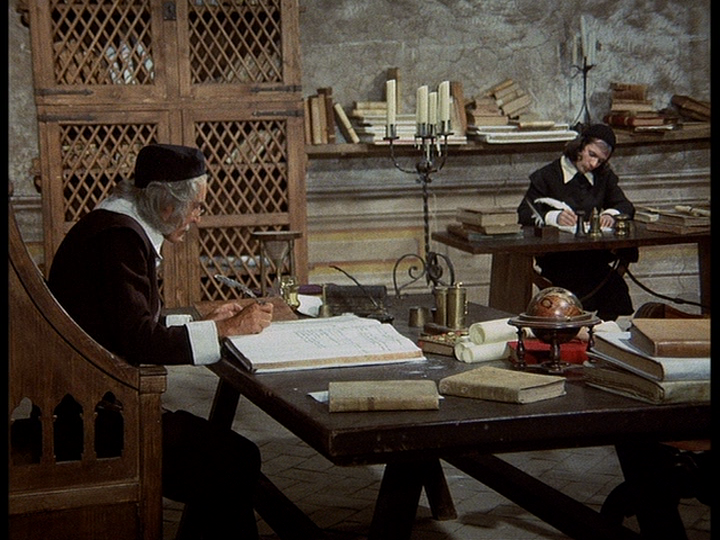
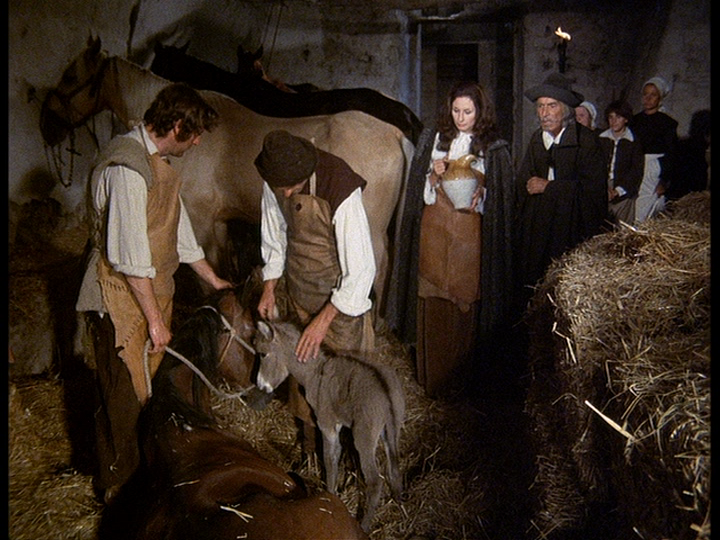
Seeing as I’m already a bit older than Pascal was when his life came to an end, I find comfort in reminding myself that world-changing geniuses tended to get started on that track earlier in life back then than they do nowadays. Rossellini takes us back to Pascal’s teenage years to start his film, when Blaise and his two sisters followed their father Etienne to his new post as the chief tax collector of Rouen, France. The son’s prodigious talent at mental calculation proved quite valuable in helping his father clean up the accounting mess left by his predecessor. Blaise soon ventured into other areas as he turned his attention to science and more theoretical applications of mathematics and geometry. More bucolic scenes of village life and the agrarian culture that Enlightenment-era France was emerging from put the film’s increasingly cerebral developments into a convincing real-world context.
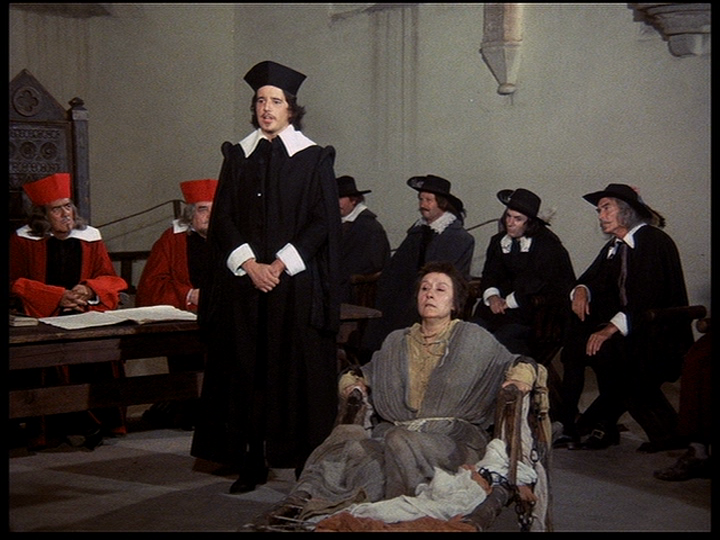
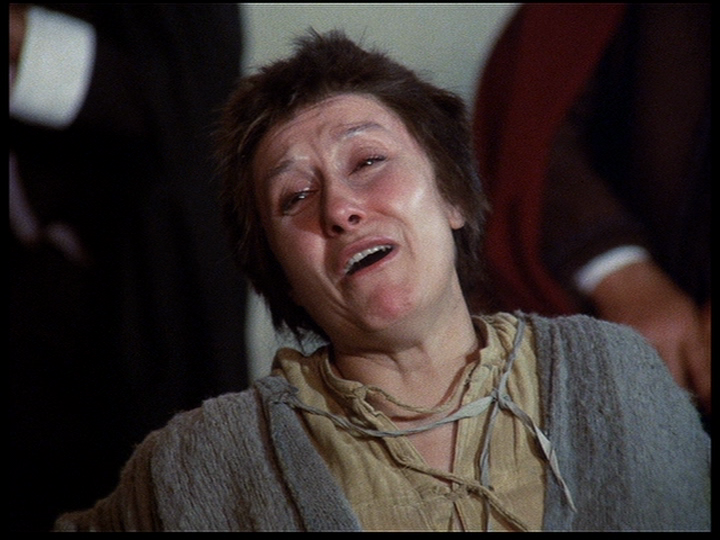
Though the structure of Blaise Pascal is, like the other titles in this series, very episodic, with no clearly delineated narrative thrust that ties it all together, one notable theme I derived from watching the film is the tension between meticulously applied logic and authoritative dogmatic religious belief. An early scene establishes that fundamental conflict, as Etienne and Blaise sit in as witnesses to hear an accused woman’s cross-examination on charges of witchcraft. It’s a moving, ominous exchange, as we learn of the torture inflicted upon her to extract her confession and hear her pitiful plea to be burned at the stake so that she can be purified of her sins. Such warped convolutions of morality, law and religion bring to mind other great Criterion films like Haxan, Day of Wrath and of course The Passion of Joan of Arc. Though we never are shown the outcome of this trial, we know how it will end, and the severe cruelty of justice, in both human and divine terms, as it was understood in this era undoubtedly provides the backdrop for Pascal’s own torments going forward.
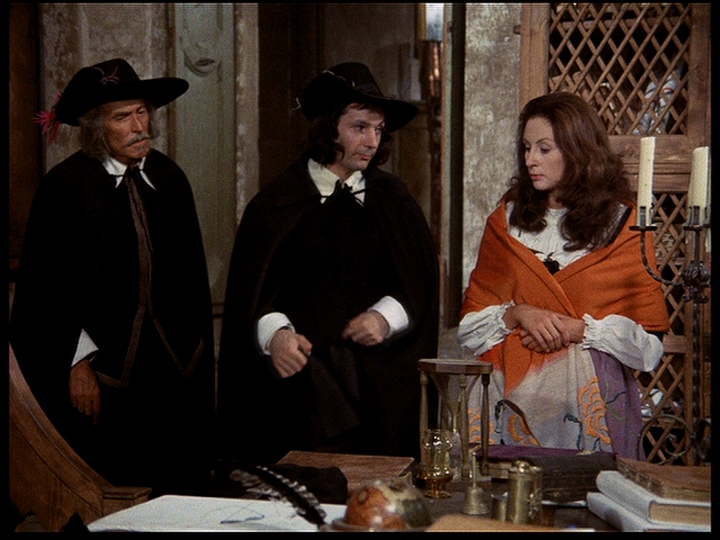
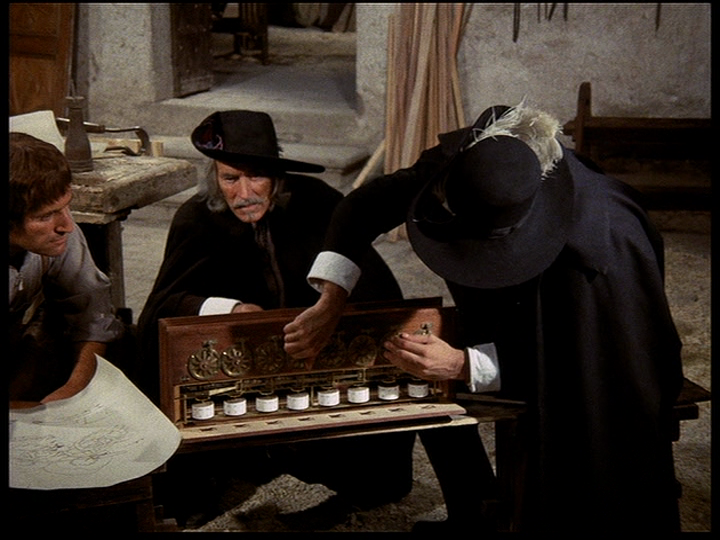
As Pascal continued his development as a scholar and inventor, he and his family were also exposed to the teachings of the Jansenists, an extremely devout and rigid sect within Catholicism that shared some common theological traits with Protestant Calvinism. Though raised as a Christian and never known to be in open rebellion against his religious upbringing, Pascal was at first skeptical toward the Jansenists, but outwardly paid them due respect, only voicing his objections when his younger sister spoke of joining their convent at Port-Royale. Content to be a man of the world yet in good standing with the Church, he pursued new discoveries in his studies of physics and to further simplify his father’s tax collecting chores, he created one of the earliest known mechanical calculating devices, a distinction which, centuries later, inspired the naming of an important computer programming language after him.
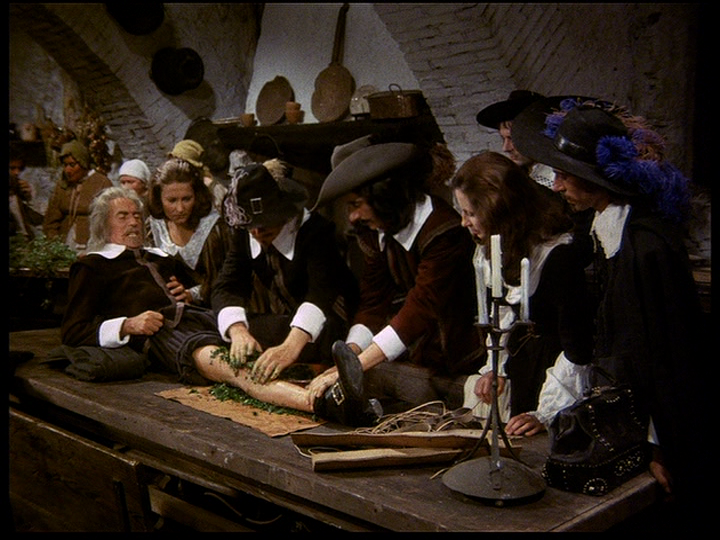
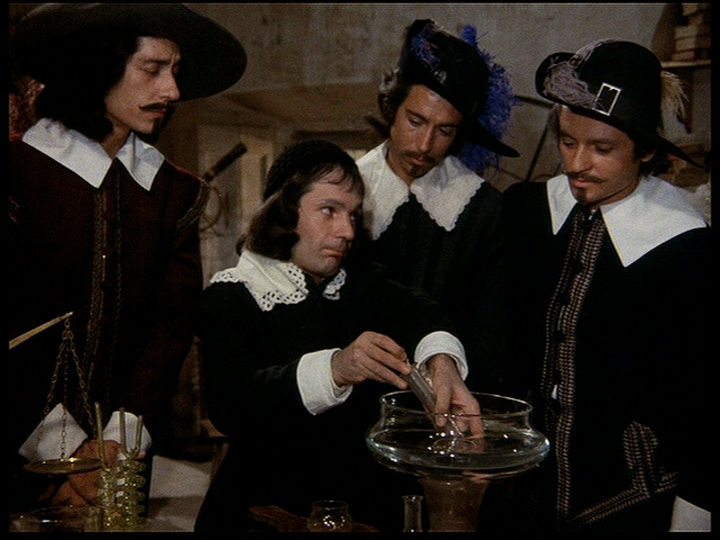
Other pivotal moments from Pascal’s life are presented in a demonstrative, pageant-like manner, including a near-fatal mishap in which his father broke his hip and required the best available medical treatment at that time, as primitive as it now may seem to us. We’re also treated to some enthralling (and extended) debates regarding the existence of the vacuum, which was generally considered an impossibility and evidence of creeping atheism by the scholarly consensus of the day, due to its incompatibility with Aristotelian scientific orthodoxy. Rossellini’s method is to presuppose some familiarity with the subject matter on the part of his audience; I’m here to advise a little brushing up ahead of time so that when the pivotal exchanges occur on screen, you’re better prepared to follow along with the briskly enunciated points and counterpoints. The scenes are kind of fascinating from a science geek’s point of view, but if that seems like a foreign language to you, I’m not sure there’s much that I or anyone else can do to make the syringe-fondling and ladder-climbing experiments any more compelling to the average viewer.
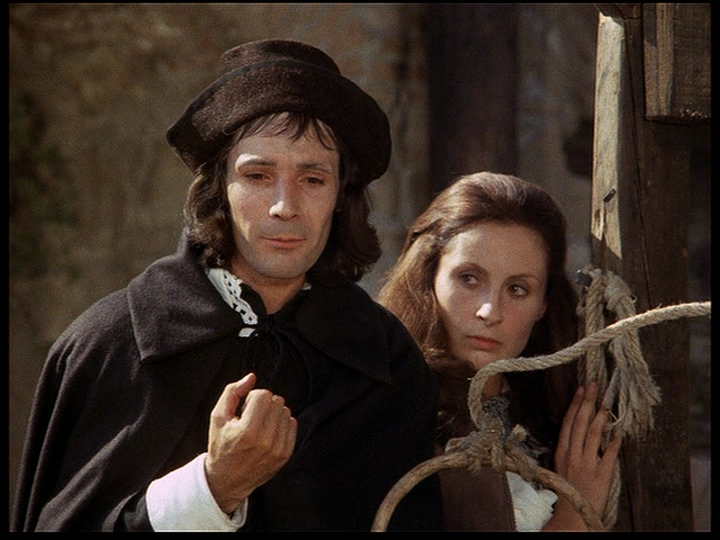
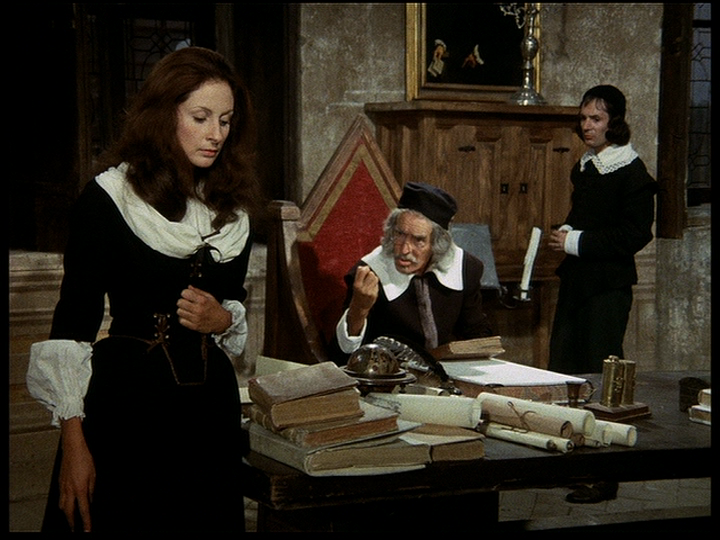
Likewise, Blaise Pascal probably won’t do too well at holding the attention of viewers apathetic or avoidant in regard to religious controversies. The film, which was originally made for TV and broadcast in two episodes a little over one hour each, shifts from a mostly science-focused first half to a mostly religion-focused conclusion. The division roughly parallels Pascal’s own adult life, as he became increasingly skeptical of the power of human reason to serve as a reliable guide. The strains that this growing reliance on piety and spiritual direction created within his family, as one of his sisters considered vows of renunciation and risked losing her share of the family fortune, could have been exploited much more melodramatically if Rossellini had chosen to do so, and probably would have resulted in a more emotionally compelling film. But the director retains his distance, allowing the conversations to take place at medium range for the most part, barely exploring the interiority of the supporting characters.
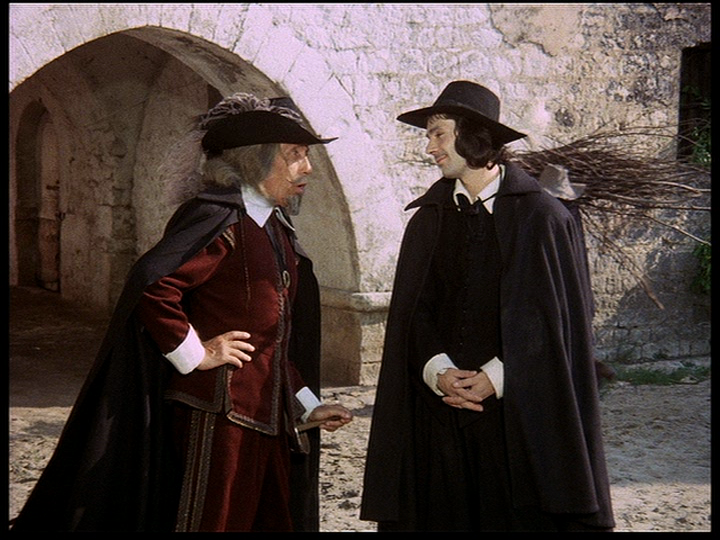
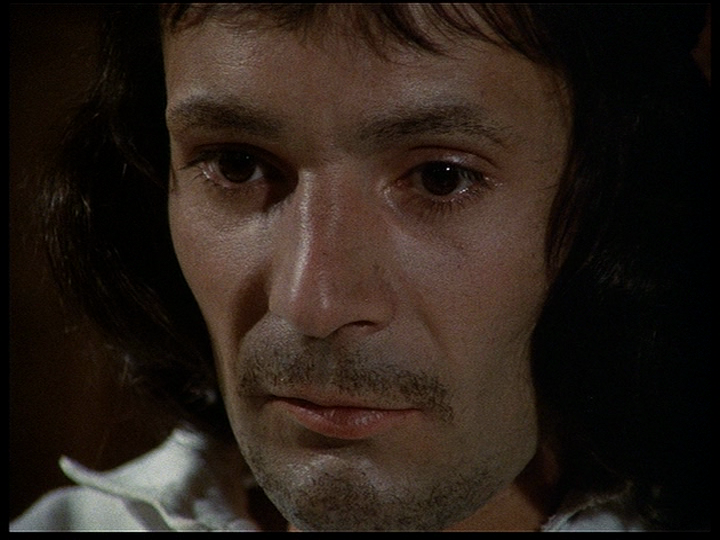
Only toward the end of the film do we begin to get a sense of what’s really gnawing at Pascal the man, as we sense that the last reserves of his pride and self-sufficiency are exhausted after years spent exploring the upper limits of what a single human intellect can produce. It’s quite likely that the stress of pushing back against the pressures of hierarchal authorities and veiled threats of persecution for subverting the established order resulted in fatigue and a sense of resignation, leading Pascal to seek out the consolations of religion. His own failing health and the short, swift brutality of human existence all around him also played a part in confirming his dour, ascetic outlook. But of course, a mind as brilliant and insightful as Pascal’s could hardly be content to be a mere follower, and so he went on to become one of the most influential philosophers and theologians of his time.
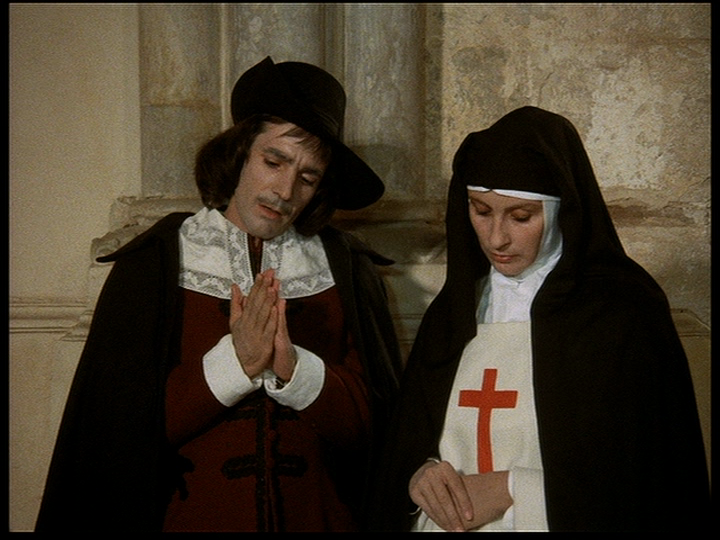
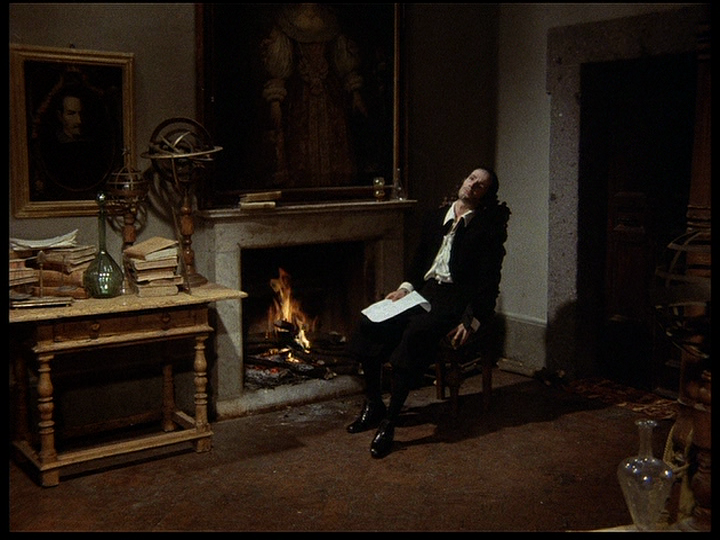
These final portions of Blaise Pascal evoke his spiritual pilgrimage quite movingly for anyone familiar with his anthology known as Pensées, an apologetic defense of Christianity that he left uncompleted at the time of his death, but went on to become the greatest single foundation for his lasting fame. After a period of several years in which Pascal found himself increasingly repulsed by the attitudes and preoccupations of the affluent circles he traveled in, he renewed his spiritual pilgrimage, following after the example set by his younger sister who’d entered the convent several years earlier. Pascal, who never married and probably never experienced sexual fulfillment of any kind, instead channeled all that repressed passion in the pursuit of intimacy with a God who, one night in November 1654, finally met with Pascal, resulting in a detailed account of overwhelming mystical experience known as the Memorial.
[youtube http://www.youtube.com/watch?v=-lGR91zAaAg&version=3&hl=en_US&rel=0]
This video clip, with its imperfect subtitles, is the best sample I can find of the film for an English speaking audience. It’s the scene in which Pascal articulates his famous Wager, stating that “since the existence of God cannot be proved or disproved through reason, and there is much to be gained from wagering that God exists and little to be gained from wagering that God doesn’t exist, a rational person should simply wager that God exists and live accordingly.” Now a quick survey of the literature (or even a cursory browse of YouTube videos related to the clip embedded above) will demonstrate that Pascal’s Wager has no shortage of challengers, and my purpose here is not to engage in theological debate. But his formulation of the wisdom and necessity of faith continues to be an operative principle in the lives of many, and if nothing else, this portrayal of circumstances that led to development of the idea helps increase our understanding, putting life’s big questions before us to work out our own solutions, even if it falls a bit short in achieving Rosselini’s lofty (perhaps facetious?) goal to “revise the whole conception of the universe’ through his films.
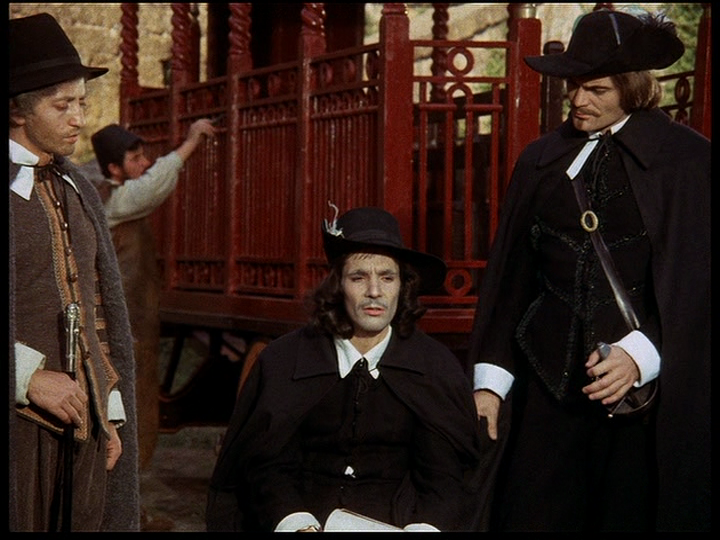
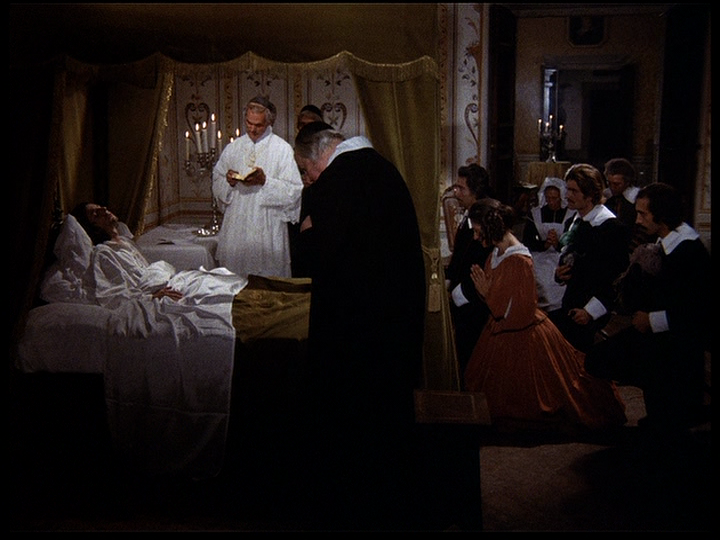
Pascal’s final significant achievement included in the film was the establishment of a public transportation line in Paris, an honor bestowed upon him by the king of France even as his fellow Jansenists were being publicly condemned as heretics and persecuted by the same authorities. Pascal’s theological and philosophical writings weren’t published and widely disseminated until a decade or so after his death, leaving him to die, exhausted and almost alone in the world, unaware of the enduring influence that his private reflections would have on so many lives over the centuries. The final ten minutes of Blaise Pascal are impressively solemn, his placid acceptance of last rites accompanied by eerie electronic synthesized music that would fit right in as a track on Aphex Twin’s Selected Ambient Works Volume II. As Pascal’s last breath expires, the music falls silent and all we hear are a woman’s muffled sobs – serene beauty and tragic loss all intermingled into one exquisitely prayerful, ultimately helpless moment in time.



